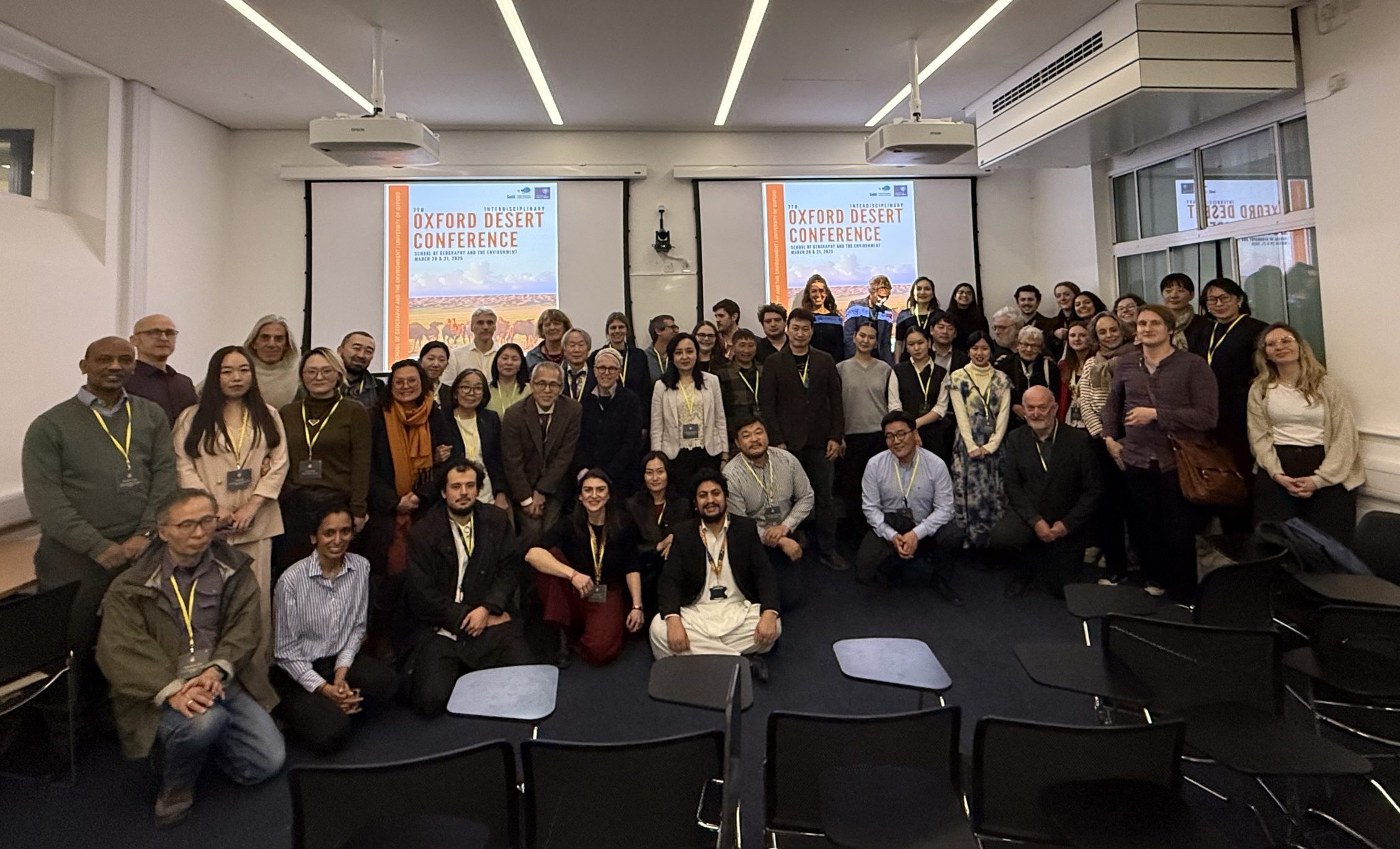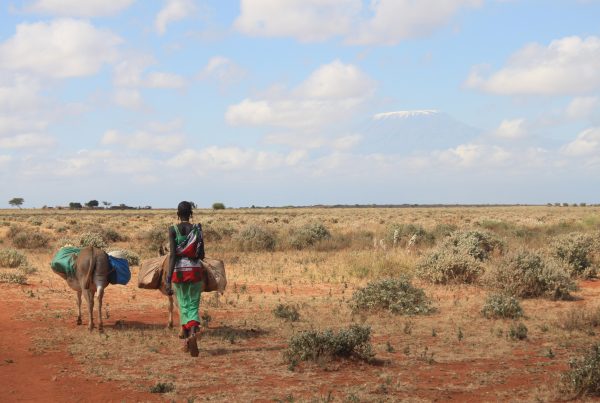Ulrich Poehlmann (University of Edinburgh; ulrich@poehlmann.co)
As an undergraduate student, I had not expected to be invited to attend, much less speak, at the Oxford Interdisciplinary Desert Conference this past March 2025. At first, I was unsure of what to expect, but I found an incredibly diverse group of scholars and representatives from pastoral societies who were genuinely interested in each other’s ideas and demonstrated to me that the key to finding global ecological and geopolitical solutions is mutual respect and curiosity.
My presentation focused on the recent geopolitical implications of Syria’s desert terrain. I chose this topic because I wanted to discuss something related to my degree in Middle Eastern Studies, and also because, after receiving the invitation to the conference, I was aware that I had to find a topic that would be interesting to others without access to my own fieldwork. The Syrian Badia was a perfect subject in this regard because so much independent ecological and socio-economic research has been conducted there in the last half century. My presentation framed this information in the context of the Levant’s post-colonial history and tied them together from the rise of the Assad family in the 1970s, through the civil war, the rise of ISIS, and eventually the end of Ba’athist rule in 2024. In finding this topic and researching it further, I gained a new appreciation for the role that desert areas play in global politics and economics, not just as static areas, but as dynamic actors on the world stage, with transnational implications for agriculture, religion, and revolutionary movements.
One of the most valuable aspects of the conference itself was the way that it brought together so many people from various backgrounds in a casual setting, creating an environment where curiosity was built up among all participants. From complex discussions on the ecological future of the Mongolian steppe to a panel that brought together representatives of nomadic peoples from across the world, people had the opportunity to avail themselves of a truly interdisciplinary gathering. The benefits are in no way clearer than in my own case. The addition of a panel for junior members of the academic world allowed undergraduates like me access to a level of in-depth discussion with leaders in their respective fields, which is not always available in the classroom. This exposure is beneficial because it naturally fosters a desire to get more involved in academia, but also because, as undergraduates, we will take that knowledge back into our tutorials and be able to share it with other students.
I am incredibly grateful for the opportunity afforded me to attend and speak at the conference, but also for the willingness of the other participants to speak with me frankly, hear my views, and share their knowledge and experience. I have come away from this experience with a great appreciation for the importance of interdisciplinary academic discussions, and I hope that this conference serves as a steppingstone towards my future engagement in the study of desert geography and the geopolitics of nomadic peoples.
Ulrich Poehlmann (University of Edinburgh; ulrich@poehlmann.co)
The 7th Oxford Interdisciplinary Desert Conference took place at the University of Oxford’s School of Geography and the Environment on 20-21 March 2025. More information here.



